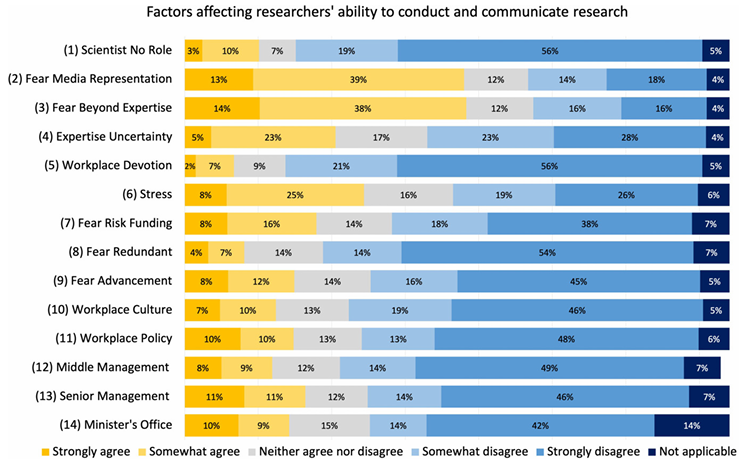Citation
Robertson, M. E., Chu, S. M., Cloutier, A., Mongeon, P., Driscoll, D. A., Heer, T., & Westwood, A. R. (2023). Interference in science: Scientists’ perspectives on their ability to communicate and conduct environmental research in Canada. FACETS, 8, 1–31. https://doi.org/10.1139/facets-2023-0005
Abstract
When researchers are sufficiently resourced to conduct research and communicate their findings, the knowledge produced can benefit the environment and society through policy. However, interference with the research process and its subsequent knowledge mobilization (“interference in science”) has been observed in several countries, particularly for environmental researchers. Using a mixed-methods approach, we surveyed environmental researchers in Canada (n = 741) to investigate the perceived prevalence, source, and effects of interference and considered whether these perceptions differ by region, career stage, research area, and membership in any scientific society. Although over half of researchers were not restricted from speaking to the media (54%), and most had never been asked to make “undue modifications” to their work (84%), the vast majority (92%) reported at least some degree of interference in their work during their careers. Consequences of interference were more prevalent among early-career researchers and included negative impacts on job satisfaction, mental health, and undue modification to work leading to inaccurate or incomplete science communication. Although environmental researchers in Canada deem themselves overall better able to conduct and communicate their work than under previous federal governments, reports of ongoing political interference remain concerning. We recommend increased support for researchers and further investigations into interference.
Key figures
